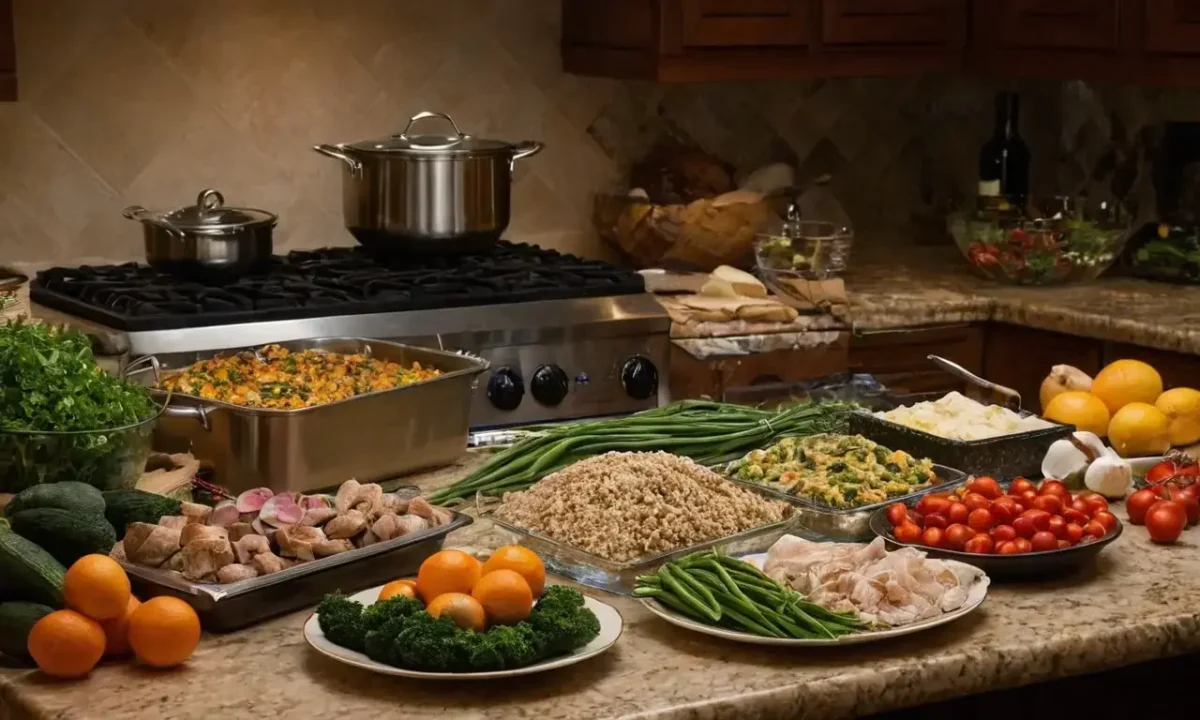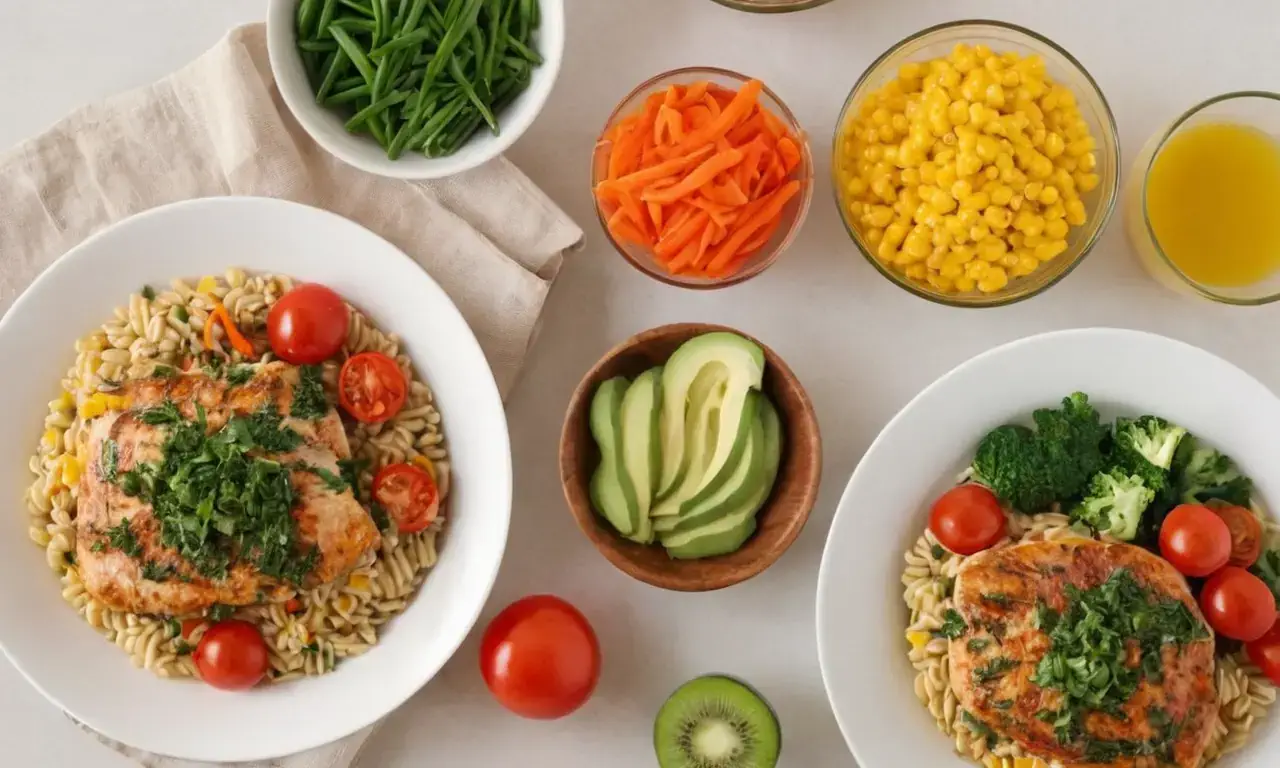
Mastering Weeknight Dinner Prep Strategies

Mastering weeknight dinner prep strategies is a crucial skill for anyone looking to balance their busy lifestyle with healthy, homemade meals. With the demands of work and family life, it's easy to fall into the trap of relying on takeout or fast food, but this can have negative effects on our health and well-being. By learning how to prepare for dinner effectively, individuals can save time, reduce stress, and enjoy a more fulfilling evening routine.
The key to successful weeknight dinner prep lies in planning ahead and being intentional about the meals we choose to make. This involves not only selecting recipes that are quick and easy but also considering the ingredients needed and how they can be used in multiple dishes throughout the week. By adopting this mindset, individuals can create a more efficient kitchen workflow, reduce food waste, and enjoy a greater sense of accomplishment at the end of each day.
Planning Meals
Planning meals is one of the most critical steps in preparing dinner for busy weeknights. It allows you to visualize your schedule and make informed decisions about what dishes will work best with your available time. Start by looking at your calendar for the upcoming week, considering any commitments or appointments that might impact your cooking schedule. Then, browse through cookbooks, food blogs, or social media platforms for inspiration.
When selecting recipes, consider factors such as ingredient availability, cooking time, and nutritional value. It's also a good idea to plan meals around seasonal produce to ensure freshness and flavor. For example, if you know that Monday is a busy day at work, choose a simple recipe like one-pot pasta or stir-fry that can be prepared quickly.
Grocery Shopping
Once you have your meal plan in place, it's time to head out for grocery shopping. This step is crucial because it sets the foundation for your weeknight dinner prep. Make sure to check what ingredients are already stocked in your pantry and fridge before making a list of what you need to buy. Consider buying staples like rice, pasta, canned goods, and spices that can be used across multiple meals.
When shopping, try to stick to your list as much as possible to avoid impulse buys and save money. You might also want to consider shopping at local farmers' markets or joining a community-supported agriculture (CSA) program for fresh produce. These options not only provide healthier choices but also support local businesses and the environment.
Preparing Ingredients
Preparing ingredients in advance is another key strategy for efficient weeknight dinner prep. This can include tasks such as chopping vegetables, marinating meats, or cooking grains like quinoa or brown rice. By doing these tasks ahead of time, you'll save a significant amount of time during your actual cooking session.
Consider setting aside one day over the weekend to do all your prep work for the week. For example, you could chop onions and bell peppers on Sunday afternoon, then use them in different meals throughout the week. This approach not only saves time but also reduces stress when it's time to cook.
Using Convenience Foods

Incorporating convenience foods into your meal prep can be a game-changer for busy weeknights. These are often pre-cooked or partially prepared ingredients that can save you time and effort in the kitchen. Examples include canned beans, rotisserie chickens, and pre-cut vegetables. By using these items strategically, you can create delicious meals without spending hours cooking from scratch.
For instance, if you're making a stir-fry on Monday night, consider using pre-cooked chicken or frozen vegetables to speed up the process. This way, you'll have more time to focus on other aspects of your meal, such as seasoning and presentation.
Involving Family Members
Involving family members in preparing dinner can not only make the experience more enjoyable but also help distribute responsibilities. Assign tasks based on age and ability, so everyone feels included and valued. This could be anything from setting the table to helping with meal prep or even cooking simple dishes under supervision.
By involving your family, you're teaching them important life skills that will benefit them in the long run. It's also a great way to bond over shared experiences and create lasting memories. For example, you might have a "family cooking night" where everyone contributes to making dinner together.
Time-Saving Tips
There are several time-saving tips that can make weeknight dinner prep more efficient. One of these is meal prepping in bulk. Consider cooking large batches of rice or grains on the weekend and using them throughout the week in different meals. This approach not only saves time but also reduces food waste.
Another tip is to use a "one-pot wonder" recipe that can be cooked entirely in one vessel, reducing cleanup and cooking time. Additionally, consider investing in kitchen tools like slow cookers or Instant Pots that can help with meal prep and cooking.
Meal Prep Strategies
Implementing effective meal prep strategies requires some planning but pays off in the long run. One approach is to divide your meals into categories based on cooking method, such as "grilled," "stir-fried," or "baked." This helps you visualize how ingredients can be used across multiple dishes.
Another strategy is to focus on a theme for each meal of the week. For example, Monday might be Italian night with pasta and marinara sauce, while Tuesday could be Mexican-inspired tacos. By sticking to a theme, you'll find it easier to plan meals around common ingredients and cooking techniques.
Cooking Techniques
Mastering various cooking techniques is essential for efficient weeknight dinner prep. Learning how to cook proteins like chicken or fish quickly can make a big difference in your meal prep time. Consider investing in a cookbook that focuses on quick and easy recipes, or explore online resources for tutorials and tips.
Additionally, learning basic knife skills and how to chop vegetables efficiently will save you time in the kitchen. Practice these techniques over the weekend so they become second nature by the time Monday rolls around.
Healthy Eating Options
Choosing healthy eating options is crucial when it comes to weeknight dinner prep. Focus on incorporating a variety of fruits and vegetables into your meals, as well as lean proteins like chicken or fish. Aim for whole grains instead of refined carbohydrates, and limit your intake of processed foods.
Consider meal prepping salads in advance by preparing the ingredients and storing them in separate containers. This way, you can assemble a healthy salad quickly on busy nights without sacrificing flavor or nutrition. You might also want to explore plant-based protein sources like tofu or legumes for added variety.
Budget-Friendly Ideas
Eating well doesn't have to break the bank. There are many budget-friendly ideas that can help make weeknight dinner prep more affordable. One approach is to shop in season and use what's available at your local farmers' market. You might also want to consider buying in bulk or shopping at discount grocery stores.
Another idea is to repurpose leftovers into new meals. For example, if you have leftover chicken from last night's dinner, turn it into a soup or salad for the next day. This not only saves money but also reduces food waste and encourages creativity in the kitchen.
Dinner Prep Routine
Establishing a consistent dinner prep routine is key to making this process a habit. Set aside specific times each week for meal planning, grocery shopping, and cooking. Consider creating a schedule that outlines what meals you'll make on which days of the week, including any leftovers or reheating tasks.
Having a structured approach will help you stay organized and ensure that you're always prepared with healthy, delicious meals. Don't forget to leave some flexibility in your routine for unexpected events or changes in your schedule.
Kitchen Organization
A well-organized kitchen is essential for efficient meal prep. Take the time to declutter your countertops and pantry, making sure everything has its designated place. This will save you time when searching for ingredients or cooking supplies.
Consider investing in storage containers that can help keep your kitchen tidy while also keeping your meals organized. Labeling these containers with the contents and date will make it easier to plan meals and ensure that nothing goes to waste.
Conclusion
Weeknight dinner prep requires some planning, but with the right strategies and mindset, you'll be able to create healthy, delicious meals even on the busiest of nights. From incorporating convenience foods to involving family members in meal prep, there are many ways to make this process more efficient and enjoyable. By implementing these tips and finding what works best for your lifestyle, you'll be well on your way to becoming a master meal prepper.
Remember, it's all about balance and flexibility. Don't be too hard on yourself if things don't go as planned – just adjust your routine accordingly and keep moving forward. Happy cooking!
Leave a Reply





Related Links